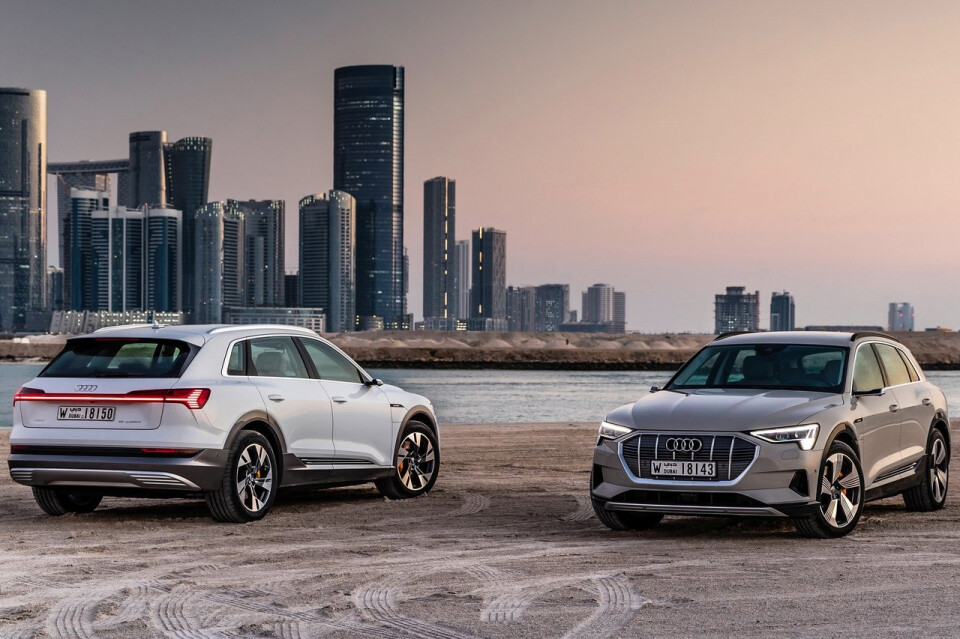
Oslo, Norway – Norway continues to solidify its position as a global frontrunner in the transition to electric mobility, with an unprecedented 97% of all new car registrations in April 2025 being electric vehicles (EVs). The latest figures released by Norwegian authorities reveal a staggering 10,942 new EV registrations out of the total new car market, underscoring the nation's remarkable embrace of sustainable transportation. This milestone represents a dramatic acceleration from the already impressive EV market share of 82.4% in 2023 and 88.9% in 2024, signaling a near-complete departure from traditional internal combustion engine (ICE) vehicles in the new car sector.
The dominance of electric vehicles is further highlighted by the model-specific sales data. The Tesla Model Y emerged as the top-selling car in April, a testament to its popularity and the strong brand loyalty Tesla commands in the Norwegian market. Following closely were the Volkswagen ID.4 and the Toyota bZ4X, both representing significant strides by established automakers in the electric segment. Remarkably, the entire top 30 list of best-selling car models for the month consisted solely of electric vehicles, effectively relegating gasoline and diesel cars to the fringes of the new car market.
The overall growth of the Norwegian car market in 2025 is also being spearheaded by the electric revolution. The cumulative number of new car registrations for the year has surged by 28% compared to the same period in 2024, with EVs accounting for the lion's share of this increase. This growth trajectory underscores not only the increasing consumer preference for electric mobility but also the effectiveness of Norway's comprehensive policies aimed at incentivizing EV adoption.
Norwegian government authorities have noted a particularly strong inclination towards electric vehicles in the corporate sector. Businesses are increasingly opting for EVs for their fleet vehicles, driven by a combination of economic benefits, such as lower running costs and tax incentives, and a growing commitment to environmental sustainability. This trend further accelerates the transition away from fossil fuel-powered vehicles in the country.
Another significant development in the Norwegian EV market is the steadily increasing market share of Chinese electric vehicle brands. While the article does not specify particular brands or market share percentages, this trend indicates a growing global competitiveness in the EV sector, with Chinese manufacturers successfully entering and gaining traction in one of the world's most advanced EV markets. This development could have broader implications for the global automotive landscape, suggesting increased competition and potentially more affordable EV options for consumers worldwide.
Norway's remarkable success in EV adoption is the result of a long-term, multifaceted strategy implemented by the government. This strategy includes a combination of significant financial incentives, such as exemptions from value-added tax (VAT) and registration taxes on EVs, as well as reduced road tolls and ferry charges. Furthermore, EVs often benefit from preferential treatment in parking and charging infrastructure development. These policies have effectively made EVs economically competitive, and in many cases, more attractive than their gasoline or diesel counterparts.
Beyond financial incentives, Norway has also invested heavily in developing a robust charging infrastructure across the country, addressing range anxiety – a key concern for potential EV buyers in other markets. The widespread availability of charging stations, both in urban and rural areas, has made EV ownership practical and convenient for a large segment of the population.
The Norwegian experience offers valuable lessons for other nations striving to reduce their carbon emissions from the transportation sector. While the specific policies implemented in Norway may not be directly transferable to every country due to varying economic conditions and political landscapes, the underlying principles of providing strong incentives, investing in infrastructure, and setting clear targets can serve as a blueprint for accelerating the adoption of electric vehicles globally.
However, even in Norway's success story, challenges remain. The reliance on hydroelectric power for a significant portion of its electricity generation helps to ensure that the environmental benefits of EVs are fully realized. Countries with a higher proportion of fossil fuels in their energy mix may need to address their electricity generation sources to maximize the positive environmental impact of EV adoption. Additionally, the long-term implications of a fully electric vehicle fleet, such as battery recycling and the sourcing of raw materials for battery production, will need continued attention and sustainable solutions.
Despite these challenges, Norway's achievement of 97% EV share in new car registrations is a monumental milestone in the global transition to sustainable transportation. It demonstrates that with ambitious policies, consistent investment, and strong public support, a future dominated by electric vehicles is not only possible but rapidly becoming a reality. The world will continue to watch Norway's progress closely as it pioneers the path towards a cleaner and more sustainable automotive future.
[Copyright (c) Global Economic Times. All Rights Reserved.]






























